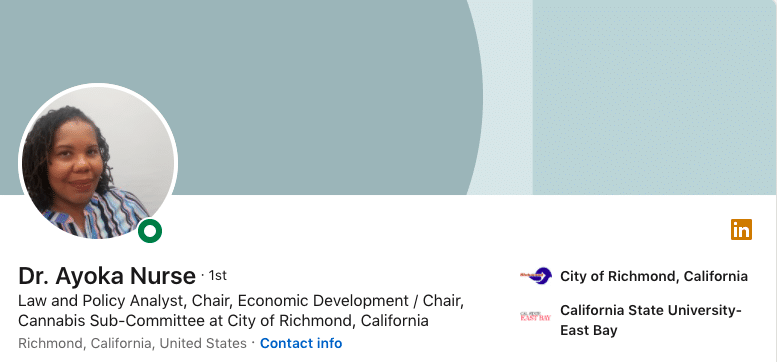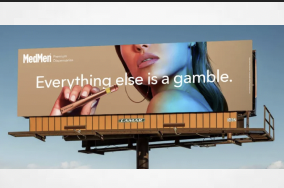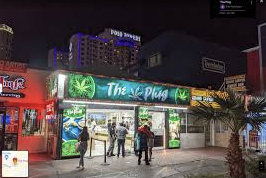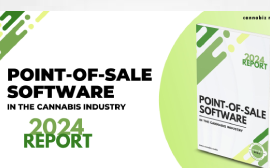Authored By: By Dr. Ayoka Nurse
Background of Study
The current public policies in local and state cannabis ordinance and equity programs may enhance racial disparities if they follow the pattern of exclusion and criminalization that encompass past policies promoted as beneficial to African Americans but uphold racial capitalistic practices.
From the systemic history of racism in the United States, African Americans exclusion from economic opportunities leads to maximizing profits for the White elite (Hirschman, 2019). Before the civil war, there were more cannabis farms than cotton farms (Green, 2005).
American slaves and sharecroppers cultivated and tended to cannabis farms. As new products gained popularity and imports were preferred by the rich, the production of hemp slowed down.
Federal laws were limiting, and taxing cannabis became a way of controlling production. Cotton plantation owners promoted cotton products, and society began to look at hemp clothing as inferior (Green, 2005).
After the Mexican Revolution in 1910, there was a fear that the influx of Mexican immigrants would increase recreational use (Green, 2005). The nation shifted its views of cannabis, and it became something one uses to alter consciousness, termed getting high.
As a result, many White people feared cannabis users would lose their minds and commit violent crimes, especially against White women (Hirilman & Gasnier, 1936). In 1920, the United States federal government classified cannabis as a poison and enacted the Uniform State Narcotic Drug Act, and by 1934 the prohibition of cannabis was prevalent throughout the United States, with all states agreeing to adherer to prohibition laws (Green, 2005).
Purpose of the Study
The purpose of this qualitative research study was to explore 5-15 African American entrepreneurs’ perceptions about public policy barriers they face when attempting to enter the cannabis industry.
Giorgi (1997) explains qualitative research design as a means for the researcher to delve into the perceptions, perspectives, understandings, and feelings of individuals who have direct knowledge and experienced or lived the phenomenon of interest. Qualitative research study designed is concerned with answering the questions as to why a phenomenon is occurring (Giorgi, 1997).
In this study, the perception that cannabis policies are more of a barrier is in line with the pattern of ineffective polices that are promoted as beneficial to African Americans but result in their exclusion in areas of economic growth and ownership. Robinson’s (1983) theory of racial capitalism served as the theoretical foundation for this study.
The collection of data for the final study was through focused interviews with a snowball sample of eight participants who have experienced trying to enter the cannabis industry in Western City, California.
Results
Central Research Question
What public policy barriers are African Americans facing when attempting to enter the legal cannabis industry? Data were analyzed based on the central question, and three themes emerged. Theme 1 involved systemic, institutional, and structural racism reflected in cannabis policies, the implementation, and negative perceptions of African Americans are part of racial capitalism. Theme 2 involved the cannabis policies related to licensing. Theme 3 involved access to capital.
In responding to the central question, participants were asked to explain and describe their perception of policy barriers that they feel excluded them from entering the cannabis industry. All participants shared their experiences to understand their perceptions of the cannabis industry and why they feel excluded. All stated they had faced barriers that are not self-inflicted but written into cannabis policies. All stated that the cannabis industry is not concerned with correcting African Americans’ historical criminalization and its impact on the current legal industry, the lack of access to resources, and stigmas about cannabis. Some examples of specific areas of the application process, policies, and examples of racism they feel disproportionally impact African American cannabis ownership.
Overall, the participants stated that they feel that racism is rooted in cannabis policies to exclude African Americans. However, cannabis legalization both on a local and federal level is promoted as social justice reform for African Americans, unfair historical treatment related to devalued communities, and the “war on drugs.” Other participants’ responses indicated that the cannabis industry is a for profit-driven business and is no different from any other industry. The lack of ownership stems from lack of access to capital and the negative perceptions that investors, the cannabis community, and politicians have of African American cannabis entrepreneurs.
Recommendations
Three recommendations for future research emerged from this study.
The first recommendation alluded to in the above section on the study’s limitations is that future studies extend the sample population across other cities and states to understand African American perceptions of public policy barriers in cannabis.
Second, studies that involve African American women experiences attempting to enter the cannabis industry. The percentage of ownership and executive positions in cannabis is less than 5% for African Americans. For African American women in cannabis, they represent less than 2% (McVey, 2018).
It is essential to explore their perception of public policy barriers when attempting to enter the cannabis industry. White women are accepted into the cannabis industry as executives and owners at a higher rate than African American women.
The number of female executives in cannabis is 27%, higher than the 23% average executive positions held by women across all other industries nationwide (McVey 2019, p.1). For African American women, the numbers are lower; only 3% are executives (p.1).
As a result, research should be conducted on African American women’s experiences to explain if the structure of race is more paramount than gender.
Third, the study’s findings may also lead to other studies that explore African American exclusion in other industries where there is a perception of public policy barriers that exclude African Americans from ownership in several other industries where there is racial capitalism sports, black hair stores, technology. As a result, research should be conducted on African Americans attempting to enter these other industries where African Americans represent a large part of the consumer base but not ownership.
The recommendations contribute to future inclusion, decision making strategies and public policy improvements that are not just for African Americans, but any marginalized group.
Conclusion
To further address and understand the public policy barriers expressed by African American entrepreneurs entering the cannabis industry, it was essential to obtain African Americans’ perceptions that experienced obstacles that they feel exclude them from ownership.
Although no known study explores cannabis policy under the lens of racial capitalism, findings of this research study supported previous research findings studies such as Baradaran (2017), Taylor (2019), Leong (2012) and Shackford, (2019) that also reported about public policies that are promoted as beneficial to African Americans but result in from economic growth and ownership.
Therefore, it would be difficult to dismiss the accounts of the eight African American cannabis entrepreneurs who have experienced public policy barriers incidents that have caused them to view cannabis public policy as racist.
The cannabis industry is one of the leading cash crops in the world. The global implications classify cannabis as the new colonization. In the United States it is a market where racial capitalism is regulated using public policies. There is a deep-rooted history of systemic racism in the United States and how it has influenced public policies that are promoted as beneficial to African Americans but does not result in ownership or economic growth.
The cannabis industry can be an opportunity to shape a public policy that improves African American ownership and inclusion or encourage African Americans who have faced public policy barriers to work as a collective and not depend on a government policy or program.
This qualitative study shows a pattern of failed public policy that excludes African Americans from ownership and economic growth. Dismantling racial capitalism in public policies takes time and effort.
In the meantime, African Americans can work towards obtaining ownership and wealth without the dependance on the government enacting effective laws and policies by pulling together resources and forming their own cannabis collectives.
References
Baradaran, M. (2017). The color of money, black banks and the racial wealth gap (1st ed). Giorgi, A. (1997). The theory, practice, and evaluation of the phenomenological method as a
qualitative research procedure. Journal of phenomenological psychology, 28(2), 235-260. Green, J. (2002). The story of weed that rocked the world pavilion (3rd ed). London, UK:
Pavilion Book
Hirilman, G. (Producer) & Gasnier, J. (Director). (1936). Refer Madness [Motion Picture]. United States: 2nd Stage.
Hirschman, D., Laura G. (2019). Towards an economic sociology of race. Brown University. http// www.sba.gov/advopcacy
Leong, N. (2012). Racial capitalism. Harvard Law Review 2151(126) U Denver Legal Studies Research Paper No. 13-30.
SSRN: https://ssrn.com/abstract=2009877 or http://dx.doi.org/10.2139/ssrn.2009877 McVey, E (2017). Marijuana daily chart breakdown of marijuana owners & founders by race.
Marijuana Business Daily. https://mjbizdaily.com/chart-19-cannabis-businesses-owned-
founded-acial-minorities/
Robinson, C. (1983). Black marxism (3rd ed). Chapel Hill, NC.
Sheffield, M. (2019, April 16). 84 percent in new survey say marijuana use should be legal. The
Hill. https://thehill.com/hilltv/what-americas-thinking/439104-84-percent-in-new-survey-
say-marijuana-use-should-be-legal
Taylor, K. (2019). Race for profit how banks and the real estate industry undermined black homeownership (1st ed.). Chapel Hill, NC
Author Biography
Dr. Nurse Bio
Dr. Ayoka Nurse is a Bay Area native born and raised in Richmond, California. As a Policy Analyst and the owner of Global Reach Strategies, Mrs. Nurse has over 25 years of professional experience.
Her career began as a journalist, first as an entertainment reporter for Pacific News Service with several published articles in local and national newspapers, including the San Francisco Examiner.
She is the co-founder of Youth Radio, a national media organization, an Assistant Editor for Gavin music trade magazine with feature stories airing on National Public Radio, Public Radio International, and local stations KPFA-Berkeley, KGO, and KMEL- San Francisco.
Cannabis experience includes providing policy research, analysis, and industry strategies for several entities in the United States and globally.
Contact via Linked in at
https://www.linkedin.com/in/dr-ayoka-nurse-25866976/
After gaining recognition and winning several awards for both print and radio journalism, she realized that the theme of most of her work was related to public policy, popular culture, and its impact on social constructs. This realization drives her to explore cannabis policy formation, implementation, and how it affects communities adversely impacted by the failed ‘war on drugs.’
Dr. Nurse has a Ph.D. in Public Policy and Administration focusing on law and policy, a Baccalaureate in Political Science, and a Master’s in Public Administration.
Currently, Dr. Nurse is the Chair of the Economic Development Committee and the Cannabis Sub-Committee for Richmond, California.



















